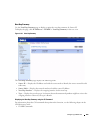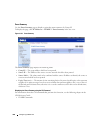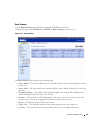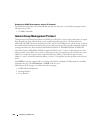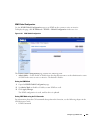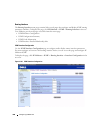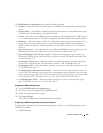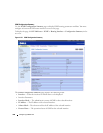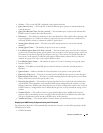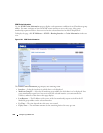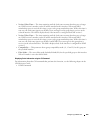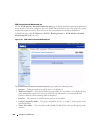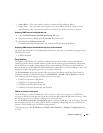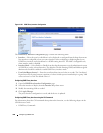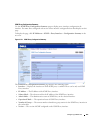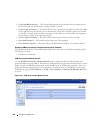
Configuring IP Multicast 691
•
Version
— The version of IGMP configured on the selected interface.
•
Query Interval (secs)
— The frequency at which IGMP host-query packets are transmitted on the
selected interface.
•
Query Max Response Time (1/10 of a second)
— The maximum query response time advertised in
IGMPv2 queries sent from the selected interface.
•
Robustness
— The robustness parameter for the selected interface. This variable allows tuning for the
expected packet loss on a subnet. If a subnet is expected to be lossy, the robustness variable may be
increased. IGMP is robust to (robustness variable-1) packet losses.
•
Startup Query Interval (secs)
— The interval at which startup queries are sent on the selected
interface.
•
Startup Query Count
— The number of queries to be sent on startup.
•
Last Member Query Interval (1/10 of a second)
— The last member query interval is the maximum
response time inserted into group-specific queries sent in response to leave group messages, and is also
the amount of time between group-specific query messages. This value may be tuned to modify the
leave latency of the network. A reduced value results in reduced time to detect the loss of the last
member of a group. This value is not used for IGMP version 1.
•
Last Member Query Count
— The number of queries to be sent on receiving a leave group report.
• Interface Statistics
•
Querier
— The address of the IGMP querier on the IP subnet to which the selected interface is
attached.
•
Querier Status
— Indicates whether the selected interface is in querier or non querier mode.
•
Querier Up Time (secs)
— The time in seconds since the IGMP interface querier was last changed.
•
Querier Expiry Time (secs)
— The time in seconds remaining before the other querier present timer
expires. If the local system is the querier, this is zero.
•
Wrong Version Queries
— The number of queries that have been received on the selected interface
with an IGMP version that does not match the IGMP version configured for the interface, over the
lifetime of the entry. IGMP requires that all routers on a LAN be configured to run the same version of
IGMP. Therefore, a configuration error is indicated if any queries are received with the wrong version
number.
•
Number of Joins
— The number of times a group membership has been added on the selected
interface; that is, the number of times an entry for this interface has been added to the cache table.
This gives an indication of the amount of IGMP activity on the interface.
•
Number of Groups
— The current number of entries for the selected interface in the cache table.
Displaying the IGMP Routing Configuration using the CLI Command
For information about the CLI command that performs this function, see the following chapter in the
CLI Reference Guide:
• IGMP Commands



